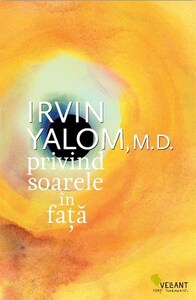Take a photo of a barcode or cover
emotional
informative
reflective
medium-paced
Insightful, though I’d rather it had more specific therapeutic guidance about how to accomplish what it counsels, rather than just abstractly stating ideal responses to death anxiety.
My therapist suggested this book. Interesting take of death anxiety.
A beautiful book that really gave me some much needed help in understanding my own feelings regarding death and dying. As a student studying to be a Funeral Professional, this is required reading and if you are assigned this book, don't just read the required pages. Read the whole thing, you'll be grateful that you did.
This book gave me some great food for thought but some of the author's thoughts and writing felt pretty dated to me and the final two chapters dragged a bit. I am glad I read it though.
I found this book puzzling. Despite my questioning myself (and those who know me best) most scrupulously, I cannot say that the fear, much less the terror of death takes up much of my mental or emotional life. It's not because I'm so very young: at 66, I'm only a few years younger than [a:Irvin D. Yalom|909675|Irvin D. Yalom|https://images.gr-assets.com/authors/1238455380p2/909675.jpg] was when he wrote this book. And it's not because death is an abstraction to me. Just in the last ten years, two of my younger brothers and my mother have all died, and it has left my life profoundly different.
What I worry about is not dying. It's pain, or losing my mental capacities to the point where I'm no longer recognizable as me. It's ending my life in way that puts a burden on others that I could have avoided by clearing out a lot of unnecessary possessions earlier in life. Most of all, what worries me is that I will look back at the end and think, "What a lot of difference I might have made if only I had acted differently!"
So, this book (which an 89-year-old friend whose wife is dying and who is in decline himself asked me to read) seems unnecessary to me. Yet I did take away some helpful hints. One: the ripples that we send out into others' lives help us continue to make the world a better place after we are gone. Two: connecting with other people helps us live happier lives here, now, before we leave, no matter what we are or are not able to accomplish in life.
I want to give Yalom credit for those, because in other ways, I found him annoying. All too often, he told the story of his therapeutic interventions as if they were half-hour episodes of a crime drama, with him as the detective and the solution inevitably arriving at the end. He also cites insights from Epicurus, Tolstoy, and Nietzsche that are commonplace as far as I am concerned, which seems pretentious of him. I have to check my bias, however, because I was cynical about his one interaction with a Jewish thinker (other than Freud). The one patient he openly challenged and seemed to disdain was a rabbi. Could Yalom not see his own psychological stakes in rejecting the authority of the tradition he emerged from?
Yalom is a plainspoken writer, a facile storyteller, easy to understand. So, if the issues he addresses are your issues, see if this book speaks to you. I'm not sorry I read it.
What I worry about is not dying. It's pain, or losing my mental capacities to the point where I'm no longer recognizable as me. It's ending my life in way that puts a burden on others that I could have avoided by clearing out a lot of unnecessary possessions earlier in life. Most of all, what worries me is that I will look back at the end and think, "What a lot of difference I might have made if only I had acted differently!"
So, this book (which an 89-year-old friend whose wife is dying and who is in decline himself asked me to read) seems unnecessary to me. Yet I did take away some helpful hints. One: the ripples that we send out into others' lives help us continue to make the world a better place after we are gone. Two: connecting with other people helps us live happier lives here, now, before we leave, no matter what we are or are not able to accomplish in life.
I want to give Yalom credit for those, because in other ways, I found him annoying. All too often, he told the story of his therapeutic interventions as if they were half-hour episodes of a crime drama, with him as the detective and the solution inevitably arriving at the end. He also cites insights from Epicurus, Tolstoy, and Nietzsche that are commonplace as far as I am concerned, which seems pretentious of him. I have to check my bias, however, because I was cynical about his one interaction with a Jewish thinker (other than Freud). The one patient he openly challenged and seemed to disdain was a rabbi. Could Yalom not see his own psychological stakes in rejecting the authority of the tradition he emerged from?
Yalom is a plainspoken writer, a facile storyteller, easy to understand. So, if the issues he addresses are your issues, see if this book speaks to you. I'm not sorry I read it.
some parts of it were genuinely comforting or at least thought provoking, but some parts did absolutely nothing for me. I also didn't love the style that tried to provide examples by giving accounts of previous sessions with clients, as if he perfectly remembers all these details from years ago.
also, -1 star just for the number of times Freud was mentioned
also, -1 star just for the number of times Freud was mentioned
emotional
reflective
medium-paced




